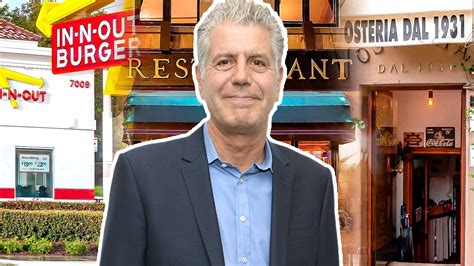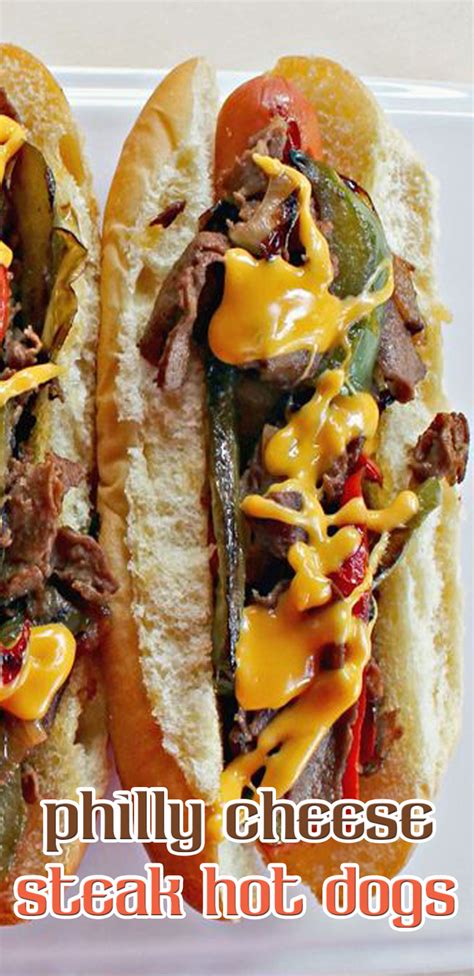
Skip the overly ambitious brunch specials and anything trying too hard to be trendy, according to the late Anthony Bourdain, who shared a list of restaurant items best avoided in his books and interviews. The culinary icon cautioned diners against dishes that are likely overpriced, poorly executed, or potentially harboring less-than-fresh ingredients.
Bourdain’s recommendations, culled from years of experience in professional kitchens, offer a practical guide to navigating restaurant menus and making informed choices. His advice, though sometimes blunt, aims to protect diners from common pitfalls and ensure a more satisfying dining experience. His insights remain relevant for both casual diners and seasoned foodies.
The “No-Nos” According to Bourdain:
-
Brunch Specials: Bourdain often criticized brunch, particularly the Sunday buffet. He considered it a way for restaurants to use up leftovers from the previous week. “Brunch is a dumping ground for the odd bits of this and that, the kitchen’s refuse,” he stated in Kitchen Confidential. He advised caution, especially with seafood items at brunch, as freshness can be a concern. The potential for cross-contamination and improper temperature control in buffet settings also raised red flags for him.
-
Fish on Mondays: This advice is perhaps one of Bourdain’s most widely cited. He warned that restaurants typically receive their major fish deliveries on Thursdays or Fridays. By Monday, the fish is likely to be less fresh. He advised, “I wouldn’t order fish on Monday.” Unless the restaurant is known for its exceptional seafood program with daily deliveries, opting for a non-fish dish is generally a safer bet at the beginning of the week. This is especially true for inland restaurants.
-
Anything with Hollandaise Sauce: Bourdain considered hollandaise sauce a potential hazard due to the raw eggs and butter it contains, making it a breeding ground for bacteria if not handled properly. “Hollandaise must be made fresh, and kept hot, or else it turns into a science project,” he wrote. He suggested that the risk of contamination, combined with the likelihood of improperly made or stored hollandaise, makes it a dish to avoid.
-
“Special” Specials: While not all specials are bad, Bourdain cautioned against blindly ordering them without inquiring about their ingredients and preparation. Sometimes, “specials” are simply a way for the kitchen to offload ingredients that are nearing their expiration date. He suggested asking detailed questions about the dish, including where the ingredients came from and how they were prepared. A truly special dish, he argued, should be a reflection of the chef’s creativity and the restaurant’s commitment to quality.
-
Overpriced Caviar: Bourdain viewed extremely expensive caviar as often being a status symbol rather than a reflection of superior quality. He believed that the price markup on caviar in many restaurants is exorbitant. Unless you are a true caviar connoisseur, he suggested that the money could be better spent on other culinary experiences. He often pointed out that less expensive varieties of roe can offer a similar taste experience at a fraction of the cost.
-
Well-Done Steak: This was a point of principle for Bourdain. He believed that ordering a steak well-done is an insult to the animal and the chef. He argued that cooking a steak to well-done removes all the flavor and texture that makes a good steak enjoyable. In Kitchen Confidential, he wrote, “Well-done steak is ruined meat.” He suggested that if you prefer your steak cooked to that level, you might as well order something else.
-
Anything with Truffle Oil: Bourdain was a vocal critic of truffle oil, considering it a cheap imitation of real truffles. He argued that most truffle oils are made with synthetic compounds that mimic the flavor of truffles but lack the complexity and nuance of the real thing. He described the taste as “petroleum-based” and “chemical.” He advised diners to be wary of dishes that prominently feature truffle oil, as it often masks other flavors and adds an artificial aroma.
-
Swordfish: Due to overfishing and concerns about mercury levels, Bourdain generally advised against ordering swordfish. He pointed out that swordfish populations have been depleted in many areas and that the fish tends to accumulate high levels of mercury due to its position in the food chain. He suggested opting for more sustainable and less contaminated seafood choices.
-
Anything Too Trendy: Bourdain was often skeptical of restaurants that chased culinary trends too aggressively. He believed that these trends often prioritize novelty over quality and that the food tends to be style over substance. He suggested sticking to restaurants that focus on classic techniques and well-executed dishes rather than chasing the latest food fads.
-
Foie Gras (depending on origin): Bourdain had a complex relationship with foie gras. While he appreciated its rich flavor and texture, he was also aware of the ethical concerns surrounding its production. The force-feeding of ducks or geese to enlarge their livers has been criticized by animal welfare advocates. Bourdain acknowledged these concerns and suggested that diners should be mindful of the origin of the foie gras and choose restaurants that source it from producers with humane practices. He was not completely against foie gras, but he urged responsible consumption.
-
Overly Complicated Dishes: Bourdain believed that simplicity is often the key to great cooking. He was wary of dishes with too many ingredients or overly elaborate presentations. He argued that these dishes often suffer from a lack of focus and that the flavors can become muddled. He preferred dishes that highlight the quality of the ingredients and showcase the chef’s skill in simple, elegant preparations.
-
“Farm-to-Table” Buzzwords (without substance): While Bourdain appreciated the farm-to-table movement, he was critical of restaurants that used the term as a marketing gimmick without genuinely sourcing their ingredients locally and sustainably. He suggested asking specific questions about the origin of the ingredients and visiting local farmers’ markets to get a sense of the restaurant’s commitment to local sourcing. He believed that true farm-to-table restaurants should be transparent about their sourcing practices and actively support local farmers.
-
Soup of the Day (with Caution): While soup can be a comforting and delicious option, Bourdain cautioned that it can sometimes be a way for restaurants to use up leftover ingredients. He suggested asking about the ingredients and preparation of the soup to ensure that it is freshly made and not simply a receptacle for kitchen scraps. A good soup should be made with high-quality ingredients and simmered for a long time to develop its flavor.
-
Anything the Waiter Pushes Too Hard: Bourdain advised against ordering dishes that the waiter seems overly eager to promote. He believed that this is often a sign that the dish is not selling well or that the kitchen is trying to get rid of ingredients that are about to expire. He suggested trusting your own instincts and ordering what you truly want to eat rather than being swayed by the waiter’s recommendations.
Why Bourdain’s Advice Still Matters:
Bourdain’s insights into the restaurant industry remain relevant because they are rooted in fundamental principles of food quality, kitchen practices, and transparency. His advice isn’t about being a picky eater; it’s about being an informed consumer who appreciates good food and wants to avoid being taken advantage of. In an era of increasingly complex menus and sophisticated marketing tactics, Bourdain’s practical wisdom provides a valuable framework for making smart dining choices. His focus on freshness, ethical sourcing, and culinary integrity continues to resonate with diners who value quality over hype.
Moreover, Bourdain’s critiques often highlighted the power dynamics within the restaurant industry, from the treatment of kitchen staff to the relationship between chefs and customers. By encouraging diners to ask questions and demand transparency, he empowered them to hold restaurants accountable and support establishments that prioritize quality and ethical practices. His legacy extends beyond simple food preferences; it encompasses a broader commitment to fairness, integrity, and respect within the culinary world.
Bourdain’s Legacy:
Anthony Bourdain’s influence on the culinary landscape is undeniable. He demystified the inner workings of professional kitchens, exposed the realities of the restaurant industry, and championed the importance of food as a cultural bridge. His books, television shows, and essays inspired countless individuals to explore the world through food, to appreciate the diversity of culinary traditions, and to approach dining with a sense of curiosity and adventure. While his “no-nos” provide practical guidance for navigating restaurant menus, his broader message is about engaging with food in a more meaningful and informed way. He urged diners to be adventurous, to try new things, and to support restaurants that are passionate about their craft. His legacy is one of culinary exploration, cultural understanding, and unwavering commitment to quality and authenticity.
Bourdain’s advice should be taken as guidelines rather than hard rules. Every restaurant is different, and there are always exceptions. A small, local restaurant with a chef passionate about brunch may offer a brunch experience far superior to a large chain. Similarly, a restaurant located near a reliable source of fresh fish may serve excellent seafood on Mondays. The key is to be an informed and discerning diner, to ask questions, and to trust your own judgment.
Ultimately, Bourdain’s legacy is one of encouraging critical thinking and informed decision-making, both in the kitchen and at the dining table. His advice remains a valuable resource for anyone who wants to navigate the complexities of the restaurant world and enjoy a more satisfying and authentic dining experience. His passing left a void in the food and travel world, but his insights continue to guide diners towards better culinary experiences.
Frequently Asked Questions (FAQ) Related to Bourdain’s Restaurant Advice:
-
Why was Bourdain so against brunch?
Bourdain viewed brunch as an opportunity for restaurants to utilize leftover ingredients from the previous week, potentially compromising freshness and quality. In Kitchen Confidential, he referred to it as a “dumping ground” for kitchen refuse. He also highlighted the risks of cross-contamination and improper temperature control, particularly in buffet settings. While not all brunch establishments are created equal, Bourdain’s skepticism stemmed from his experience witnessing the behind-the-scenes practices in many restaurants. He believed that the demand for brunch often exceeded the kitchen’s capacity to prepare fresh, high-quality food.
Quote: “Brunch is a dumping ground for the odd bits of this and that, the kitchen’s refuse.” – Anthony Bourdain, Kitchen Confidential.
-
Is it always a bad idea to order fish on Mondays?
No, it’s not an absolute rule, but a general guideline based on common restaurant practices. Bourdain’s advice stemmed from the fact that most restaurants receive their major fish deliveries towards the end of the week (Thursday or Friday) to prepare for the weekend rush. By Monday, the fish may be less fresh unless the restaurant has a robust seafood program with daily deliveries or is located near a reliable source of fresh seafood. He advised considering the restaurant’s location, reputation, and specific fish dishes before ordering fish on Mondays.
Consider asking your server when the fish was delivered to determine its freshness.
-
Why did Bourdain dislike truffle oil so much?
Bourdain’s disdain for truffle oil stemmed from its artificial flavor and lack of authenticity. He argued that most truffle oils are made with synthetic compounds that mimic the flavor of truffles but lack the complexity and nuance of real truffles. He often described the taste as “petroleum-based” and “chemical.” He believed that truffle oil is often used to mask inferior ingredients or to add a false sense of luxury to a dish.
-
What should I look for in a restaurant that claims to be “farm-to-table”?
Bourdain advised diners to be skeptical of restaurants that use the “farm-to-table” label without genuinely sourcing their ingredients locally and sustainably. He suggested asking specific questions about the origin of the ingredients, such as which farms they come from and how they are transported. Look for restaurants that are transparent about their sourcing practices, support local farmers’ markets, and feature seasonal ingredients on their menus. A true farm-to-table restaurant will be able to provide detailed information about the provenance of its food.
-
Was Bourdain completely against foie gras?
Bourdain’s stance on foie gras was nuanced. He appreciated its culinary qualities but acknowledged the ethical concerns surrounding its production. He believed that diners should be mindful of the origin of the foie gras and choose restaurants that source it from producers with humane practices. He wasn’t entirely against it, but he urged responsible consumption and encouraged diners to consider the welfare of the animals involved. It was more about ethical consumption rather than a blanket ban.
Expanded Analysis of Bourdain’s “No-Nos”:
Delving deeper into Bourdain’s list reveals not just a set of culinary preferences but a philosophy of mindful dining and an understanding of the restaurant ecosystem. Each “no-no” represents a potential pitfall, a compromise on quality, or an ethical consideration.
-
The Economics of Brunch: Bourdain’s critique of brunch extends beyond freshness concerns. The economics of brunch often necessitate cost-cutting measures. Restaurants typically offer brunch at a lower price point than dinner, which means they need to find ways to reduce expenses. Using leftover ingredients is one such tactic. Additionally, the high volume of brunch service can strain kitchen resources, leading to inconsistent food quality and rushed preparation. Labor costs are also a factor; restaurants may rely on less experienced staff to handle brunch service, further impacting the quality of the food. The margins on brunch items are often significantly lower, pushing restaurants to make compromises.
-
The Freshness Factor: The emphasis on freshness permeates many of Bourdain’s recommendations. His advice about fish on Mondays and hollandaise sauce highlights the importance of ingredient quality and proper handling. Fresh ingredients not only taste better but also pose a lower risk of foodborne illness. Restaurants that prioritize freshness invest in sourcing high-quality ingredients, maintaining proper storage conditions, and training their staff on food safety protocols. Diners can assess a restaurant’s commitment to freshness by observing the appearance and aroma of the food, asking questions about the sourcing of ingredients, and paying attention to the overall cleanliness of the establishment.
-
The Ethical Dimension: Bourdain’s views on foie gras and swordfish reflect a growing awareness of the ethical considerations surrounding food production. The force-feeding of ducks and geese to produce foie gras has been widely criticized by animal welfare advocates. Overfishing of swordfish has led to population declines and concerns about mercury contamination. By urging diners to be mindful of these issues, Bourdain encouraged a more responsible approach to eating. Choosing sustainable seafood options, supporting restaurants that prioritize animal welfare, and reducing food waste are all ways to minimize the environmental and ethical impact of our food choices.
-
The Authenticity Test: Bourdain’s skepticism towards trendy dishes, truffle oil, and “farm-to-table” buzzwords underscores his appreciation for authenticity in cuisine. He believed that good food should be honest, flavorful, and reflective of the chef’s skill and passion. Dishes that rely on gimmicks, artificial ingredients, or misleading marketing claims often fall short of this standard. Diners can identify authentic restaurants by looking for establishments that focus on classic techniques, use high-quality ingredients, and have a clear culinary vision. A genuine commitment to quality and authenticity is often evident in the taste, presentation, and overall dining experience.
-
The Power of Simplicity: Bourdain’s preference for simple, well-executed dishes reflects his belief that less is often more in cooking. He argued that overly complicated dishes with too many ingredients or elaborate presentations can be overwhelming and lack focus. Simple dishes, on the other hand, allow the quality of the ingredients to shine through and showcase the chef’s skill in mastering fundamental techniques. A perfectly grilled steak, a simple pasta dish with fresh tomatoes, or a well-made soup can be more satisfying than a complex concoction with dozens of components. The key is to choose dishes that are prepared with care, attention to detail, and a genuine appreciation for the ingredients.
-
The Waiter as a Guide (and Potential Red Flag): Bourdain’s warning against dishes that the waiter pushes too hard highlights the importance of trusting your own instincts and being an informed consumer. While waiters can provide valuable recommendations, they may also be motivated by factors other than your best interests. They may be trying to sell dishes that are nearing their expiration date, that the kitchen is overstocked with, or that simply have a higher profit margin for the restaurant. It’s always a good idea to ask questions about the dishes you’re considering, to read reviews from other diners, and to trust your own judgment.
-
The Impact of Bourdain’s Criticism: Bourdain’s sharp critiques undoubtedly impacted the culinary world. While some chefs may have bristled at his bluntness, his criticisms also prompted a greater awareness of food quality, ethical sourcing, and transparency in the restaurant industry. His influence can be seen in the increasing number of restaurants that prioritize sustainable practices, embrace simpler cooking styles, and are more transparent about their sourcing of ingredients. He empowered diners to demand better food and more honest practices from restaurants, ultimately contributing to a more vibrant and authentic culinary landscape. His insights continue to serve as a valuable resource for both diners and culinary professionals, promoting a more mindful and informed approach to food.
Bourdain’s legacy extends beyond his specific “no-nos.” He encouraged a culture of curiosity, exploration, and critical thinking when it comes to food. His work fostered a deeper appreciation for the diversity of culinary traditions and the importance of food as a cultural connector. By challenging the status quo and demanding transparency, he helped to create a more honest and authentic dining experience for everyone. He championed the unsung heroes of the kitchen, highlighted the importance of culinary traditions, and inspired countless individuals to pursue their passion for food.









